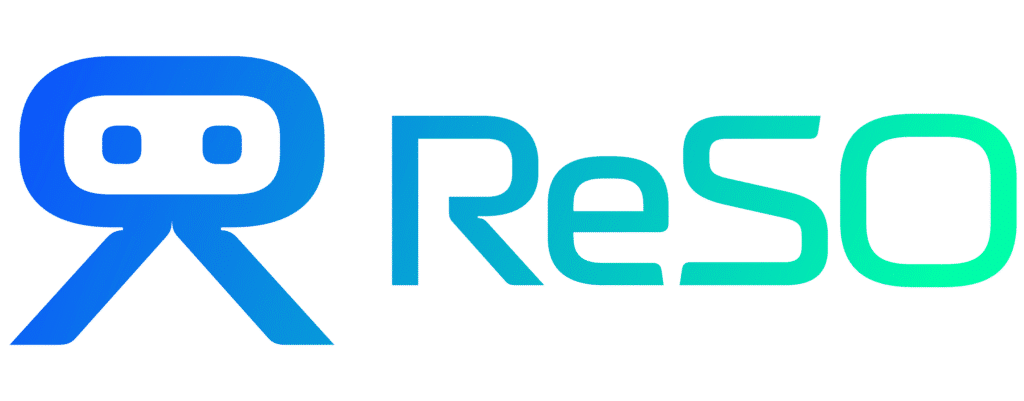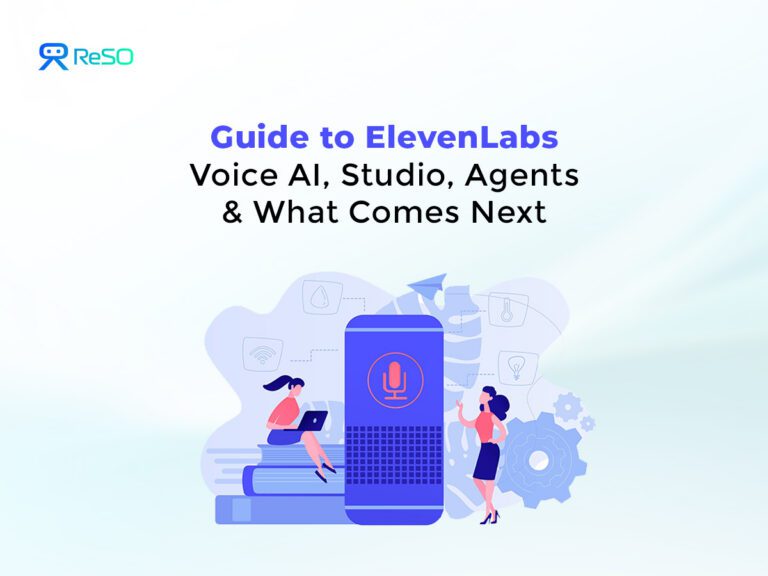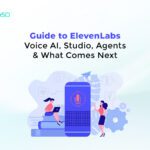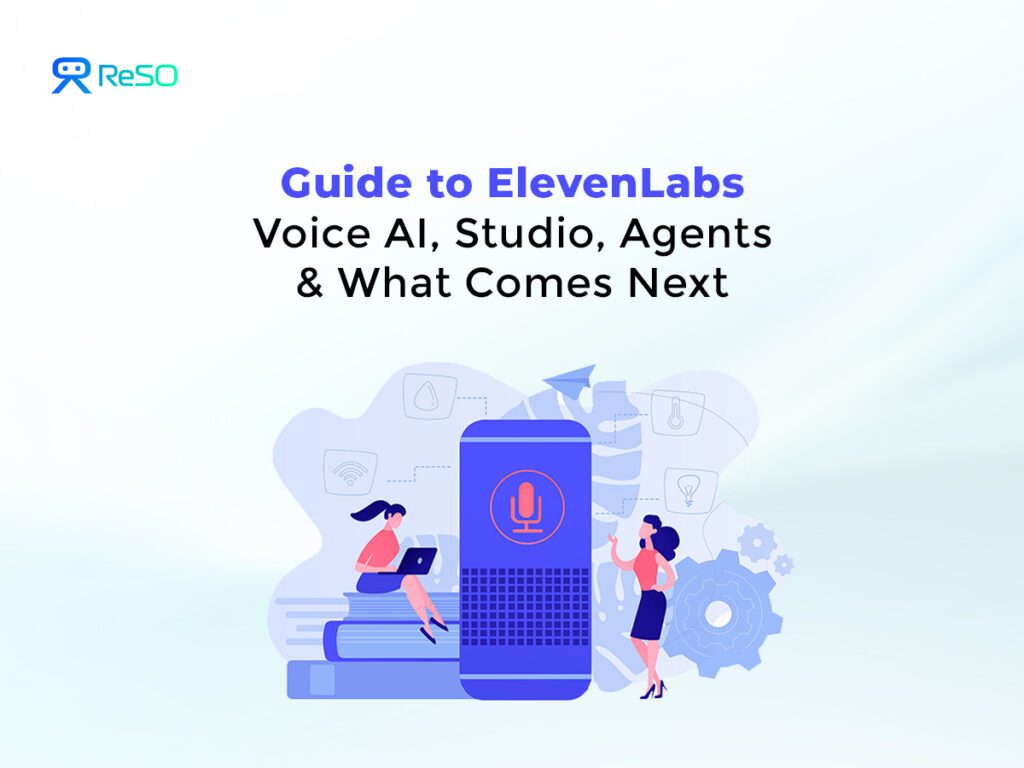ElevenLabs is a leading voice AI platform that combines ultra-realistic text-to-speech, voice cloning, a unified audio/video Studio, agent capabilities, and a new AI music generator cleared for broad commercial use, making it a versatile choice for creators, developers, and enterprises in 2025. The latest updates add agent testing frameworks, WebSocket output formatting, language code support, normalization controls, looping SFX, and enhanced enterprise features like history filtering and HIPAA-aligned model options, showing a mature, end-to-end stack for production voice and audio workflows.
Key takeaways
- ElevenLabs now spans TTS, cloning, Studio editing, agents, and music, enabling end-to-end audio workflows in one ecosystem.
- Agents (formerly Conversational AI) support MCP integrations for tool-using voice assistants that can act, not just talk.
- The recent changelog adds language codes, WebSocket output format control, normalization switches, and SFX looping for production workflows.
- The AI music generator is positioned for commercial use, with reported licensing partnerships mitigating IP risk.
- Enterprise features include history filtering, admin controls, and HIPAA-aligned model options with zero retention and BAA.
Introduction
ElevenLabs builds voice AI products that turn text into highly realistic speech, clone and manage voices, edit audio and video in a unified Studio, and power live conversational agents that can use tools, culminating in a platform that consolidates previously fragmented audio workflows. This matters in 2025 because voice interfaces are moving from passive assistants to action-taking agents, while content teams need scalable, rights-safe audio production for training, support, and media.
A timely hook: ElevenLabs launched an AI music generator in August 2025 that it claims is cleared for commercial use. This expansion is beyond speech into full audio content with licensing measures intended to address legal risk in a rapidly evolving space. That launch underscores how quickly the company is shipping adjacent capabilities that creators and brands can use immediately in production.
On the infrastructure side, the September 2025 changelog highlights practical enhancements: language code support across TTS, output format selection for WebSocket streaming, normalization controls on render, looping SFX, and improved agent test frameworks—small but critical steps that improve reliability, compliance posture, and developer ergonomics. These updates show a mature cadence aimed at enterprise readiness.
The industry before ElevenLabs
From 2015 to 2021, neural TTS steadily improved over concatenative and parametric methods but still produced voices that felt generic, robotic in edge cases, and limited in emotional range. Standard offerings from cloud providers focused on many voices and languages but did not reliably deliver nuanced prosody, fast iteration loops for creators, or integrated tooling to manage voice rights and production workflows. This created friction for teams who needed both realism and operational efficiency.
Licensing and commercial rights were another pain point; creators often struggled to understand how cloned or synthetic voices could be used at scale, and enterprises lacked clarity and governance features around ownership, consent, and distribution. Meanwhile, production workflows were fragmented across point tools for generation, editing, captioning, and compliance review, leading to manual steps and quality drift. These constraints limited broader adoption despite growing interest in narrated content, support automation, and accessible media.
Between 2021 and 2023, demand intensified for localization, multi-voice podcasts, training narration, and conversational agents. However, real-time streaming with stable latency, expressive voices, and robust developer SDKs was still uneven. Many teams faced a choice: accept robotic delivery or invest in heavy post-processing and editing, sacrificing speed-to-publish. This gap set the stage for a platform that combined better base models with workflow tools and clear enterprise controls.
How the Industry Changed after ElevenLabs
ElevenLabs popularized a wave of highly realistic TTS with strong prosody, expanded voice cloning options, and a growing library of shareable voices, making natural-sounding speech more accessible to creators and brands. The company then layered a unified Studio for editing and captioning on top, so teams could fix issues quickly without toggling across multiple tools. This combination improved both output quality and operational velocity for production teams.
In 2025, ElevenLabs introduced 11ai (alpha) and rebranded Conversational AI to ElevenLabs Agents: a platform for building voice-first assistants that use MCP to connect to real tools and take actions like updating tickets or summarizing Slack. This shifts voice tech from passive responses to workflow execution, offering new value in support, operations, and knowledge tasks. The launch articles and product pages emphasize action-taking, low latency, and integrations.
Alongside, the AI music generator extends the stack beyond speech into full compositions and vocals, with coverage noting claimed commercial clearance via licensing and partnerships, addressing one of the industry’s thorniest issues. For teams seeking rights-safe audio assets, this is a meaningful development that broadens practical use cases in ads, social content, and branded experiences.
All features (as of September 2025)
- High-fidelity Text-to-Speech models (e.g., Eleven v3/Turbo/Flash): Realistic, expressive speech with support for language codes and improved timestamps for alignment and streaming; useful for narration, product videos, and dynamic prompts (Creators/Developers/Enterprise/Studio).
- Voice cloning / VoiceLab: Create custom voices for brand consistency, internal spokespeople, or character sets; supports controlled use and management (Creators/Enterprise).
- Voice Library: Discover and manage shareable/custom voices to speed selection and experimentation; useful for teams needing multiple styles (Creators/Studio).
- Studio 3.0: Unified audio + video editor with automatic captioning and text-based re-recording/speech correction workflows, streamlining post-production in one place (Creators/Studio).
- ElevenLabs Agents (formerly Conversational AI): Build voice-first assistants that can use tools via MCP, with low-latency speech, RAG, language detection, and an agent testing framework (Developers/Enterprise).
- Text to Voice Remix / Voice Remixing: Create variations/remixes of voices for tonal adjustments and style changes; helpful for campaign variants and character sets (Creators/Studio).
- AI music generator with commercial rights: Prompt-based music and vocal generation positioned for commercial use, backed by reported licensing partnerships (Creators/Enterprise).
- Reader app and mobile listening: Listen on mobile across languages, supporting accessible consumption and on-the-go workflows (B2C/Creators).
- SDKs & APIs: Official Python and JavaScript/TypeScript SDKs, React packages, realtime/WebSocket streaming, and MCP Server endpoints; frequent updates add agent testing and SFX loop support (Developers).
- Enterprise features: History filtering, admin controls, HIPAA-aligned model option (Gemini 2.5 Flash Lite in approved conditions), signed URL tracking with conversation IDs, and data management improvements (Enterprise).
- Developer/workflow features: WebSocket output format selection, SFX looping, audio device controls, normalization toggles, pronunciation dictionary PATCH updates, and language code support across models (Developers/Studio).
Example usages and audiences
- TTS models: Generate onboarding narration in multiple languages with accurate timestamps for captions (Enterprise/Developers).
- Voice cloning: Create a brand voice that can be used to support IVRs and explainer videos (Enterprise/Creators).
- Voice Library: Swap voices quickly for A/B tests in ad creatives (Creators/Studio).
- Studio 3.0: Fix mispronunciations with text-based edits and re-render captions in one pass (Creators/Studio).
- Agents: Build a support triage agent that summarizes Slack, searches tickets, and updates the CRM via MCP (Enterprise/Developers).
- Remixing: Adjust tone from casual to authoritative for different campaign segments (Creators).
- Music generator: Produce ad jingles or background tracks with claimed commercial clearance (Creators/Enterprise).
- Reader app: Publish serialized stories as auto-narrated episodes for mobile listeners (B2C/Creators).
- SDKs/APIs: Stream low-latency audio over WebSockets with explicit format controls (Developers).
- Enterprise controls: Filter history and tag conversation IDs in signed URLs for audits and governance (Enterprise).
Use cases: B2B, B2C, D2C, P2P
B2B
- Call center voice agents: Deploy an MCP-enabled agent that triages customer issues, summarizes context, and executes updates in ticketing systems; implement via Agents SDK with WebSocket streaming for low latency; costs depend on streaming minutes and agent calls.
- Internal knowledge voice agents: Narrate policy changes and answer FAQs with voice RAG; use Agents plus TTS with language codes to serve global teams; budget for usage credits across TTS and retrieval workloads.
B2C
- Personalized audiobook narration: Generate voice-tailored versions per reader preferences using Voice Library and TTS timestamps for chapter markers; costs scale with synthesis length and voice usage.
- Accessibility features: Offer multilingual audio for product guides via language codes and normalization; implement through Studio for caption alignment; pay for TTS minutes and rendering.
D2C (creators/brands)
- Creator voice monetization: Clone a distinctive brand voice for sponsored reads, managed in Voice Library; use Studio 3.0 for quick edits; cost includes cloning setup and TTS minutes.
- Multi-voice podcasts: Produce episodes with multiple cloned voices and captions; integrate with SDK for scripted segments; pay per synthesis time and post-production rendering.
- Ad jingles via music generator: Prompt short tracks with commercial clearance for ads; minimal friction for small campaigns; budget credits for music generation.
P2P
- Voice messages: Use TTS to send expressive voice notes with consistent brand persona in community groups; mobile Reader-style consumption; low per-minute cost.
- Localized narration: Crowd projects add dubbed narration with language code support; Studio for caption sync; budget for TTS minutes per language.
- Language learning partners: Practice dialogues with Agents that switch languages on-the-fly and adjust tone; consumption billed on agent runtime and TTS streaming.
Competitor analysis
ElevenLabs stands out for naturalness, prosody, and creator-friendly tooling, augmented by Studio 3.0 and Agents with MCP for actionable assistants. This combination addresses realism and workflow in a unified stack, with late-2025 updates that focus on production reliability and enterprise controls. Competitors often lead in other areas, like deeper enterprise ecosystems, broader cloud integrations, or long-standing compliance certifications.
Ethical and IP considerations remain central to voice cloning and music generation. ElevenLabs’ music generator is reported to be cleared for commercial use through licensing partnerships, aiming to mitigate IP risk relative to peers scrutinized by lawsuits. Voice cloning requires explicit consent and strong governance to avoid misuse; enterprise controls like history filtering and signed URL tracking support oversight. Teams should still conduct legal review and implement opt-in consent policies for any cloning, and verify use-specific licensing for music.
Comparison table
| Vendor | Strengths | Weaknesses | Best for |
| ElevenLabs | High realism TTS, cloning, Studio 3.0, Agents with MCP, music generator with claimed commercial clearance. | Newer in some enterprise ecosystems; evolving policy landscape for cloning/music. | Creators, product teams building agents, branded audio at scale. |
| Google Cloud TTS | Wide language coverage, strong cloud integration, stable enterprise stack. | Less creator-focused workflow; prosody may feel generic vs top-end voices. | Enterprises on Google Cloud need broad language and stability. |
| Microsoft Azure TTS | Enterprise-grade compliance, ecosystem integrations, and Cognitive Services breadth. | May require more engineering to match creator workflows. | Enterprises on Azure are prioritizing governance and integration. |
| AWS Polly/Neural | Reliability, cost controls, AWS ecosystem tools, serverless integration. | Naturalness/prosody can lag specialized providers. | High-scale backends on AWS needing predictable ops. |
| Descript/Overdub | Strong editing and collaboration; Overdub voice for creators. | Less agent tooling and music; the ecosystem is narrower outside editing. | Podcast/video teams centered on editing workflow. |
| Resemble/Murf/Play.ht/LOVO | Variety of voices, pricing tiers, and creator focus. | Mixed realism and tool depth; fragmented features across vendors. | Budget-conscious teams testing TTS options. |
How to evaluate ElevenLabs for your org (checklist & scorecard)
Checklist
- Privacy & consent: Voice rights, cloning consent model, music licensing fit for use case.
- Data residency & retention: Availability of zero-retention modes and signed BAA where needed.
- Real-time latency: WebSocket streaming stability and output format options for clients.
- Language coverage: Language code support across TTS models and accuracy for target locales.
- SDK maturity: Active updates across Python/JS/React, MCP server endpoints, and testing tools.
- Workflow fit: Studio 3.0 capabilities for captioning, corrections, and video alignment.
- Governance: History filtering, admin controls, and conversation ID tracking for audits.
- Pricing predictability: Map minutes/credits for TTS, agents, and music to usage forecasts.
- SLA & compliance: HIPAA-aligned model options and enterprise support channels.
- Future roadmap: Agents features, music licensing updates, and Studio enhancements.
Scorecard Template (0–3 each; 0=no fit, 1=partial, 2=good, 3=excellent)
| Features | Score |
| Output realism/prosody. | |
| Real-time performance. | |
| Language/localization. | |
| SDKs/APIs & tooling. | |
| Studio workflow fit. | |
| Governance/compliance. | |
| IP/licensing suitability. | |
| Total cost vs value. |
Interpretation
- 20–24: Strong fit; plan pilot with governance and usage caps.
- 14–19: Targeted use cases with defined guardrails; reassess after pilot.
- ≤13: Consider alternatives or wait for roadmap milestones.
Future outlook
Over the next 2–3 years, expect more multimodal agents that blend speech, vision, and actions, with richer prosody controls for style, emotion, and timing to meet broadcast standards. Deeper integrations with DAWs and NLEs should reduce round-trips between generation and edit, while regulations on cloning consent and training data transparency will shape product defaults and enterprise policies.
Watch for announcements on agent reliability (testing, monitoring, guardrails), music licensing breadth, Studio automation (auto-fix, auto-chaptering), and expanded WebSocket and device control features for real-time apps. These signals will indicate maturity for large-scale deployments in support, education, media, and commerce.Looking for information on more AI tools? Check out our blog category “AI Tools” here








